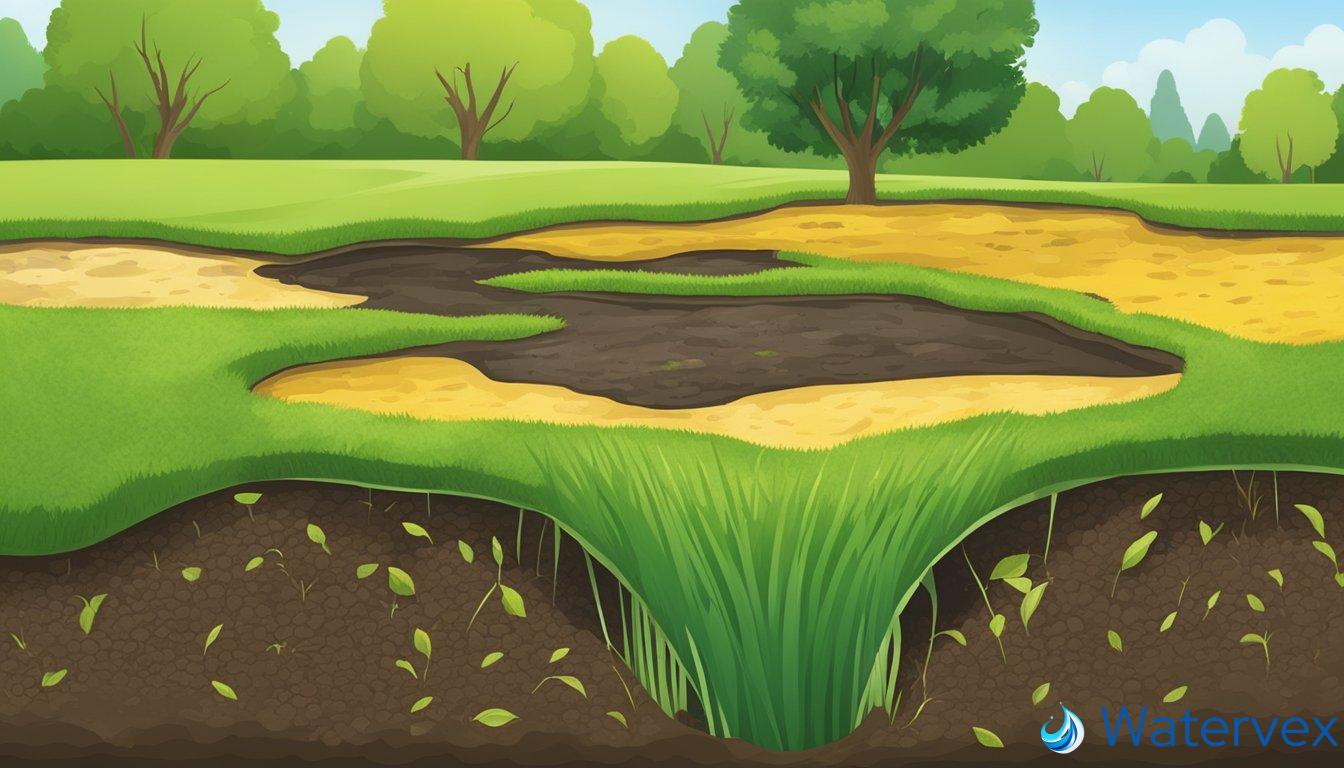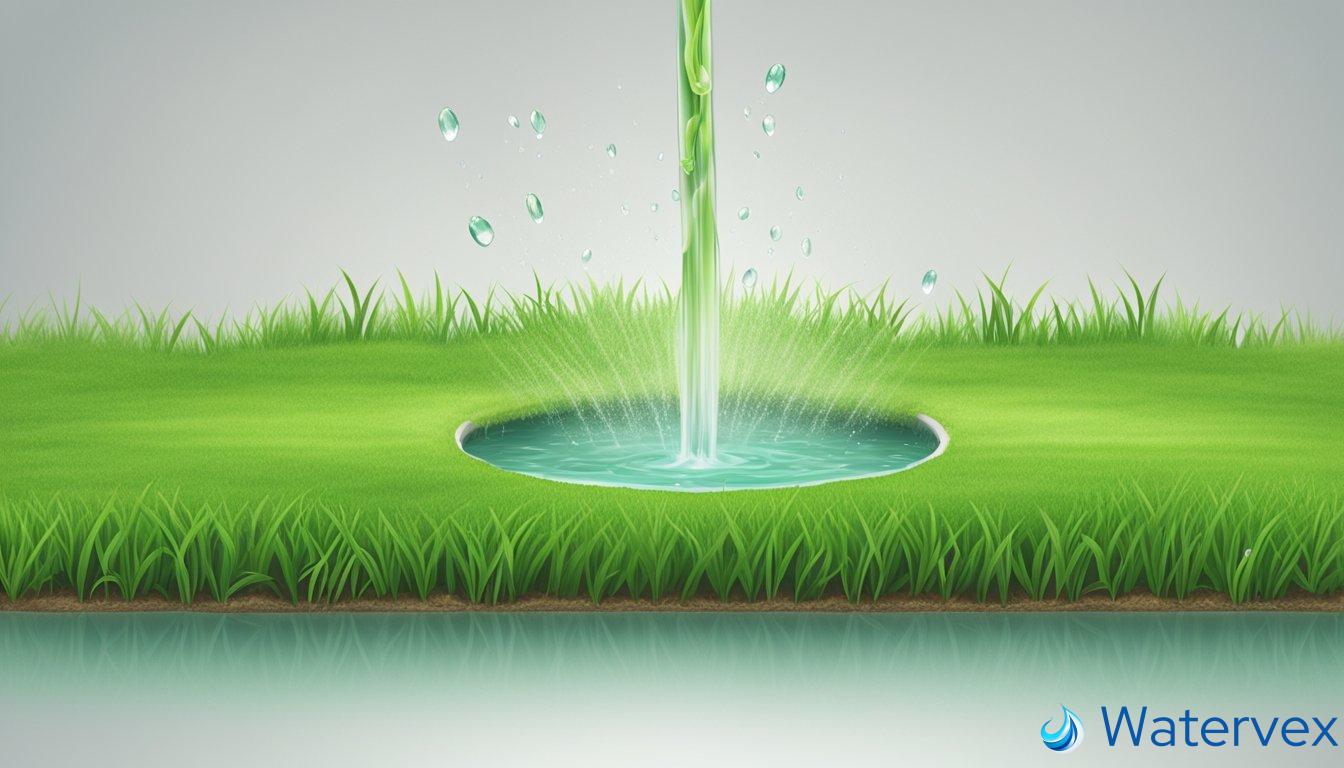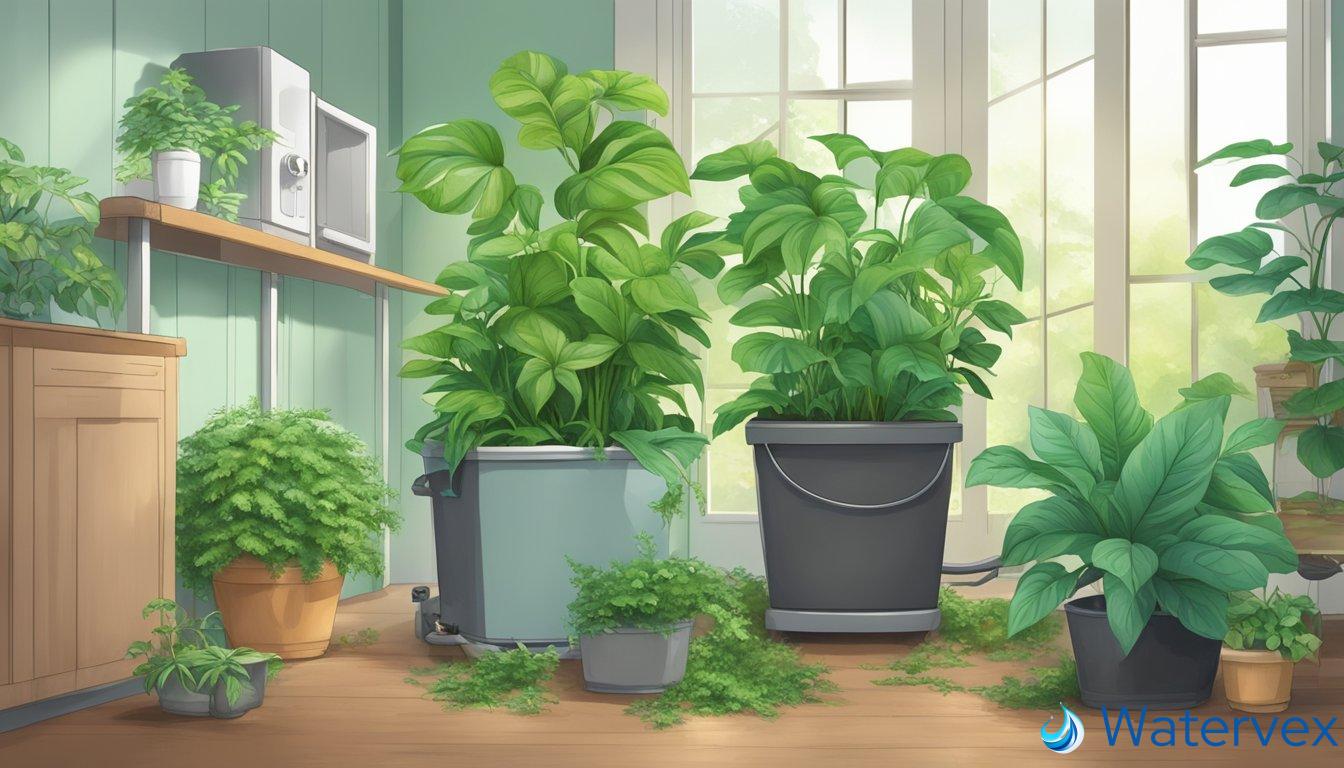When it comes to maintaining a lush lawn, the quality of water you use is vital. If you have a water softener installed in your home, you might wonder if the soft water, which typically contains higher levels of sodium, could harm your grass. This is a valid concern considering that certain levels of salt can be detrimental to plant life. Understanding the impact of water softener discharge on your lawn is critical to ensure you’re not unintentionally damaging your yard.

Soft water is devoid of the minerals that cause hardness, like calcium and magnesium, but it contains increased amounts of sodium. This trade-off can be beneficial for your home appliances and skin, but the effect on your plants and lawn can vary. Some believe that softened water leads to healthier, softer soil, which could benefit root systems, while others worry that sodium accumulation might lead to soil degradation and subsequent plant stress or demise. The key is finding a balance and knowing the composition of your own lawn’s soil, which might dictate how it handles the softer water.
Key Takeaways
- Softened water may affect grass health due to higher sodium levels.
- Soil composition and water composition both play roles in how the lawn reacts to softened water.
- Properly managing your lawn’s exposure to softened water can mitigate potential harm.
The Impact of Softened Water on Lawns
When managing your lawn, the type of water you use is as crucial as the maintenance routines you follow. Understanding how softened water interacts with your lawn’s ecosystem is essential, particularly concerning soil health and the well-being of your grass.
Can Softened Water Affect Grass Health?
Softened water, typically high in sodium ions, can create challenges for your lawn. While hard water contains minerals like calcium and magnesium, the softening process replaces these with sodium which can adversely affect soil structure and nutrient absorption. Heavy reliance on softened water can lead to deteriorating soil health, making it difficult for grass roots to obtain essential nutrients. Over time, this can compromise the overall plant health, posing a risk not just to your lawn, but to the entire garden.
When considering lawn care, it’s important to weigh the benefits of soft water against its potential to harm plant life. The iron, potassium, or chloride found in hard water can be beneficial to plants in modest amounts, contributing to their nutritional needs. However, in softened water, the reduction of these beneficial minerals and addition of sodium can harm the delicate balance of your garden’s ecosystem.
Identifying Soft Water Damage in the Garden
To gauge if softened water is impacting your lawn, observe for signs of damage such as yellowing of leaves or grass, stunted growth, and a diminished vibrancy in your plants. A tell-tale sign is often soil that appears compacted or has a crust of salt on the surface, which impedes water penetration and air circulation vital for root systems.
Visual cues: Watch for grass that appears less lush or has brown tips, as these can be indications of sodium damage.
Soil testing: Conducting a soil test can reveal elevated levels of sodium, confirming if your softened water is the culprit behind poor lawn health.
By understanding these risks and signs, you can better manage the use of softened water in your lawn care practices, ensuring that your garden remains a vibrant and healthy environment.
Best Practices for Watering with Softened Water

When you use softened water for irrigation, employing certain precautions can help you maintain a healthy lawn without causing harm to grass or the environment.
What Precautions Should Homeowners Take When Using Softened Water for Irrigation?
Monitor Sodium Levels: The salt in softened water can accumulate over time, potentially damaging your lawn. It’s beneficial to routinely check soil sodium levels. If you notice rising sodium levels, it’s time to switch to rainwater or untreated water for a period to allow sodium dilution.
Use a Bypass Valve: Installing a bypass valve on your water softener system allows you to choose when to use softened water and when to switch to hard water, preventing excessive salt from reaching your lawn.
Alternatives to Softened Water for Irrigation
Collect Rainwater: Rainwater is naturally soft without added sodium. Set up a rain barrel to collect rainwater for irrigation purposes.
Potassium Chloride Instead of Salt: If your water softening system allows, consider using potassium chloride as a substitute for regular salt. This has a less harmful impact on plants and soil.
Remember, your lawn’s health is just as important as the quality of water you use. Adjusting your watering techniques and considering the type of water you use for irrigation can lead to a more vibrant and robust lawn.
Managing Soil and Plant Health

Fertilizers are often seen as a one-stop solution for soil health, but it’s not just about adding nutrients; it’s crucial to understand the soil’s composition. If you’re using a water softener, the saline discharge could be altering your soil’s balance, leading to compromised plant growth.
Ensuring soil quality involves more than watching your plants for signs of nutrient deficiency, such as leaf discoloration or stunted growth. Conduct a soil test. These tests reveal much about soil composition, including pH levels and nutrient profiles. Aim to balance your soil pH; plants typically prefer a range of 6 to 7.5.
Balancing the soil’s pH balance involves looking at the calcium and magnesium levels, which a water softener could be depleting. In this case, you may need to add lime to raise the pH or sulfur to decrease it. Soil aeration helps improve water absorption, prevents runoff from water softener discharge, and integrates added amendments thoroughly.
Considering maintenance, especially in light of softened water use, involves regular checking and adjusting. You might need to:
- Apply fertilizers carefully, utilizing types that complement your soil’s specific needs.
- Monitor watering schedules to prevent excess saline buildup.
- Use alternatives like rainwater or hard water for irrigation to minimize salt impact.
By taking these steps, you actively maintain the health of your soil and, by extension, your lawn.

